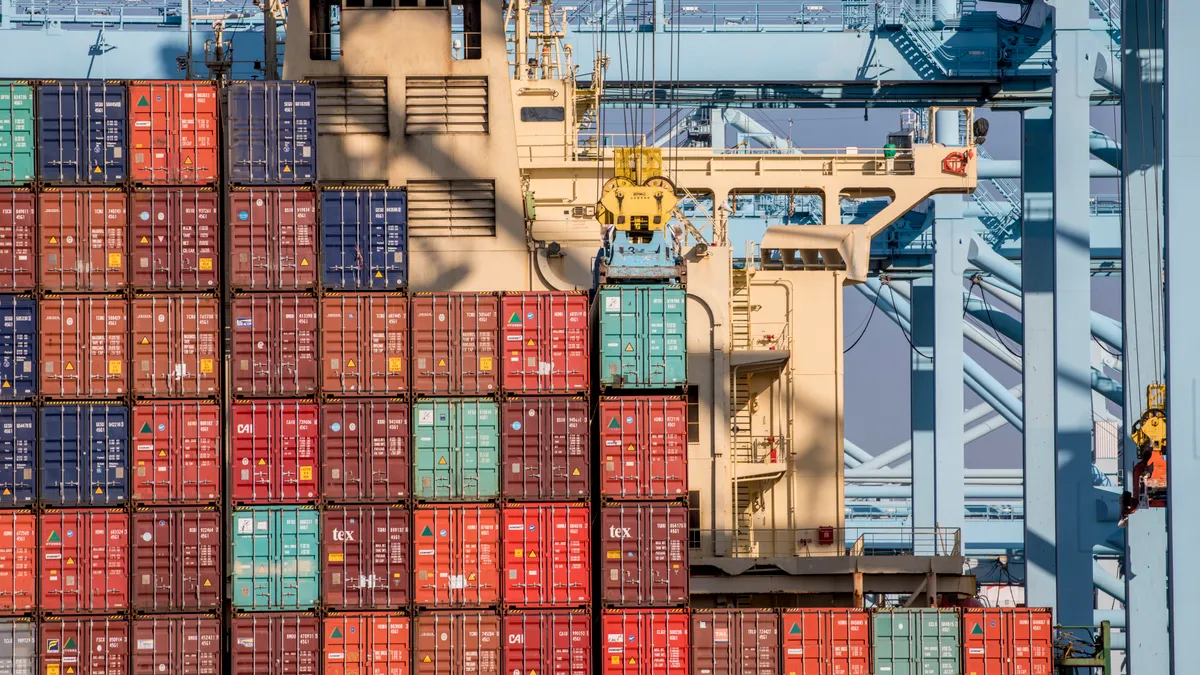UPDATE: March 12, 2019: India's Ministry of Environment, Forest and Climate Change has clarified that importers in the country's Special Economic Zones (SEZs) and Export Oriented Units (EOUs) will be exempted from its scrap plastic import ban until Aug. 31, according to Recycling International and EUWID. This transition period is expected to allow any shipments in transit to be processed.
Dive Brief:
- India will ban scrap plastic imports, the Ministry of Environment, Forest and Climate Change announced on Wednesday. The ministry said on Twitter that the move is "[t]aking India’s commitment to fight against plastic pollution further."
- The ban covers material entering Special Economic Zones (SEZs) and Export Oriented Units (EOUs) — the only two exemptions to existing plastic import restrictions that went into effect in 2016. The announcement does not specify exactly which resins are affected or when the ban takes effect. The ministry amended the import rules on March 1.
- “ISRI is disappointed in India’s shift in policy to plastic scrap imports," Adina Renee Adler, vice president of international affairs for the Institute of Scrap Recycling Industries (ISRI), told Waste Dive via email. "This highly valuable commodity is needed as feedstock in the manufacturing process. Eliminating its availability is a detriment to the global environment as it will force manufacturers in India to rely more on virgin material."
Dive Insight:
According to ISRI, U.S. plastic exports to India for the first 11 months of 2018 totaled more than 120 million kg — altogether worth more than $46 million.
Some view the new ban — labeled as an "amendment" to the 2016 regulations — as the government simply closing a loophole that had previously been left open. The government says the plastic import ban and three other amendments to its waste management regulations are intended to "strengthen the implementation of environmentally sound management of hazardous waste in the country."
The measure resembles China's material bans, which have resulted in turmoil across global recycling markets. Like India, China highlighted environmental concerns and a desire to clean up polluted areas as primary reasons for banning imports. Last year, when material imports increasingly shifted from China to neighboring Southeast Asian countries such as Malaysia and Vietnam, those countries implemented their own import restrictions — especially on plastics. They, too, cited environmental concerns over becoming the world's dumping ground for waste. Thailand has announced its own ban on all scrap plastic imports by 2021.
The similarities between India's and China's material bans might not be purely coincidental. More scrap material — especially paper and plastics — has flowed into India following the enactment of China's scrap import policies: U.S. exports of fiber into India, for instance, increased 24% from 2016 to 2017, while exports to China during the same period dropped 18%. Speakers at last fall's Paper & Plastics Recycling Conference in Chicago repeatedly highlighted India as one of the countries with the largest untapped capacity.
While it's unclear exactly when India's plastic scrap ban will take effect, and if any resins will be exempted, the regulations are sure to affect global scrap plastic markets as recyclers scramble once again to find new markets. It also remains to be seen whether India stops at plastics or if it will, like China, continue expanding to other commodities.
Earlier this year, China announced its intention to restrict imports of eight additional scrap material categories, including commonly accepted metals such as copper, steel and aluminum — an unsurprising move, considering the country has been vocal in its intent to ban all recyclable material imports by 2020.















